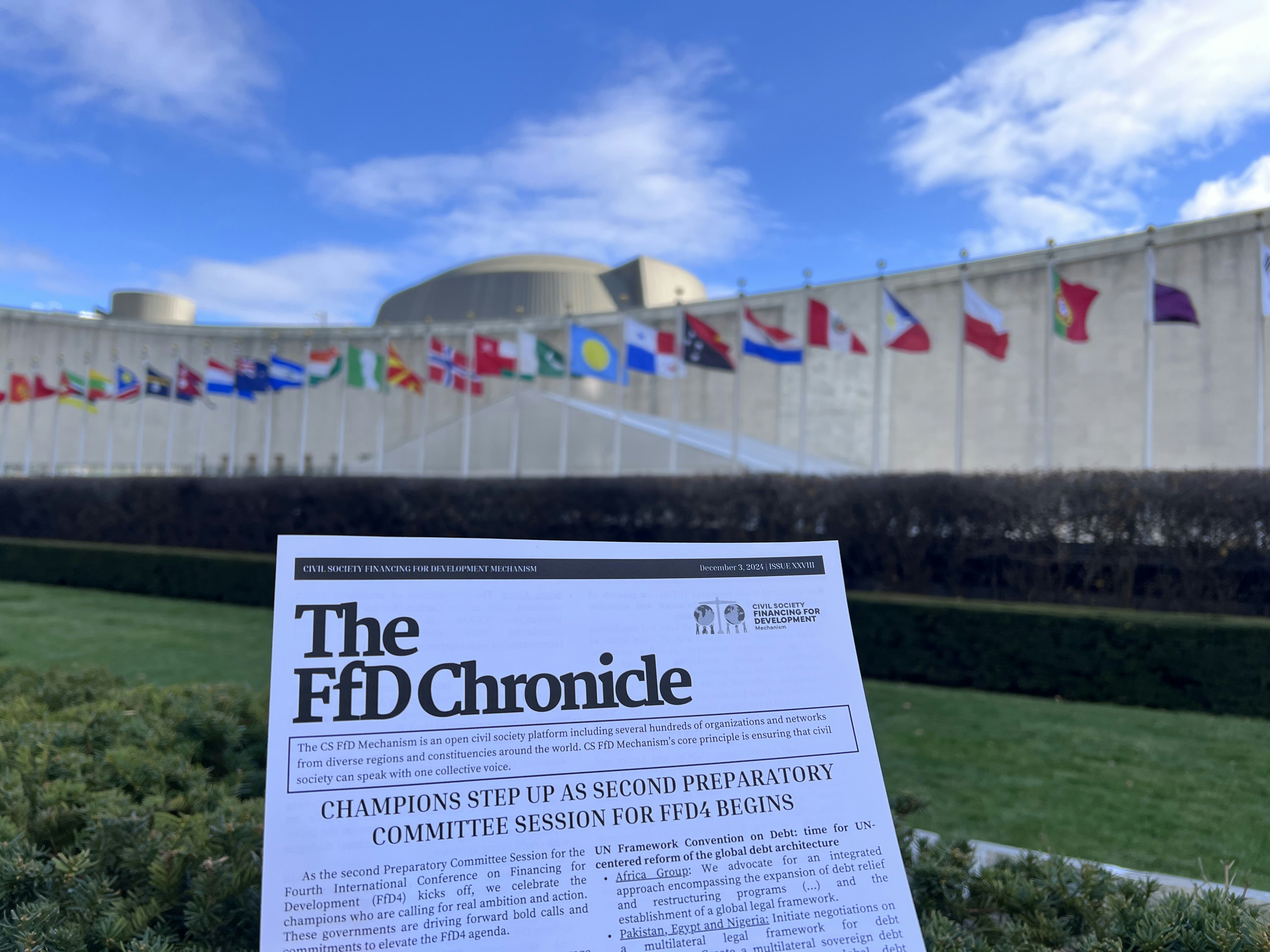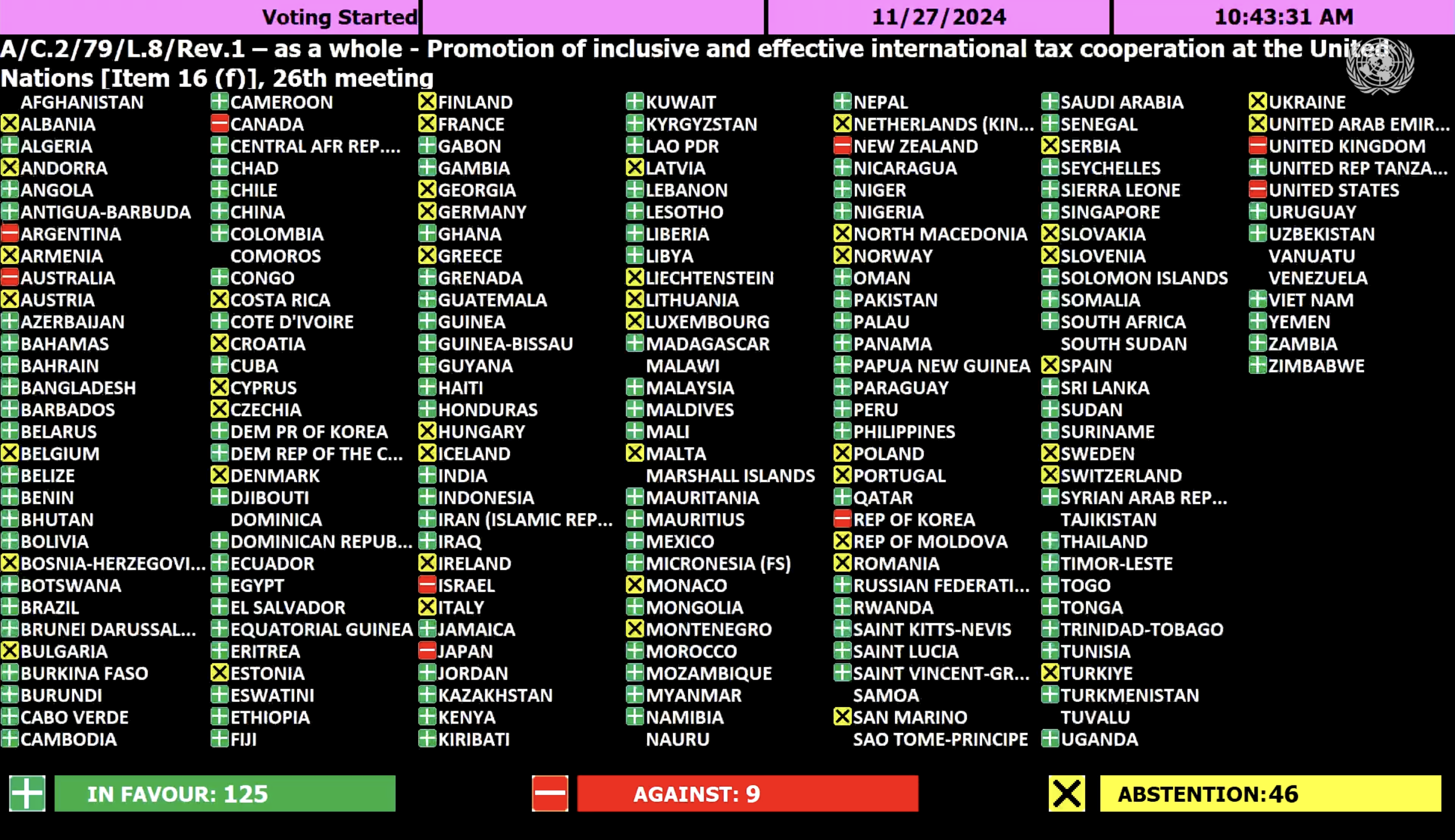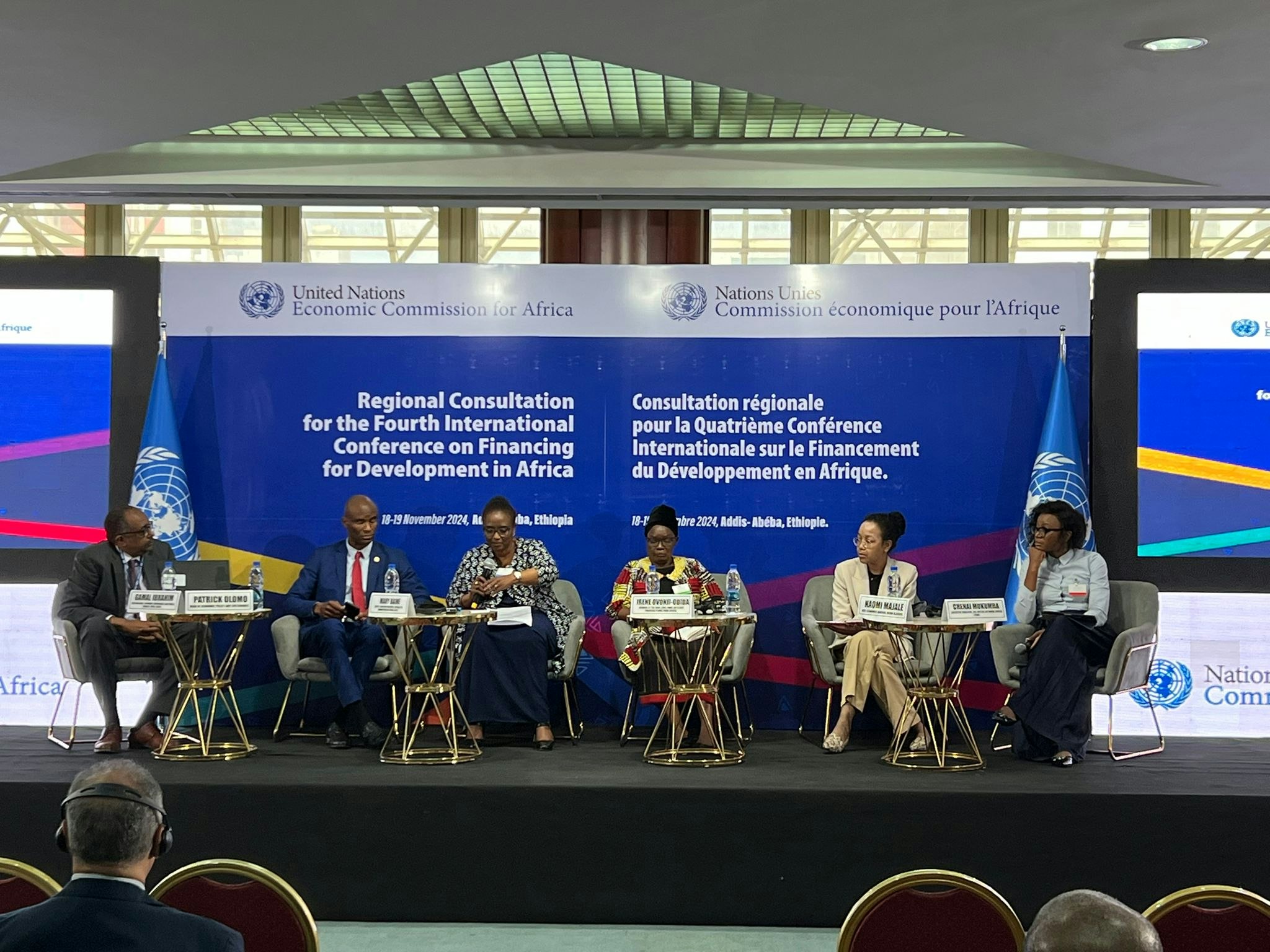
Civil Society FfD Mechanism’s Communique on the Final 2024 FfD Forum Outcome Document
22nd April, 2024
Civil society rejects EU and other Global North countries breaking silence on paras 27, 66 & 73. We call on UN member states to uphold public transparency in UN negotiations to ensure governments negotiate in good faith and to maintain broader accountability.
Para 27: We emphasize that promoting inclusive and effective international tax cooperation contributes significantly to national efforts to achieve the SDGs, since it enables countries to effectively mobilize their domestic resources. We stress that the current international tax governance structures need considerable improvements. We are committed to strengthening the inclusiveness and effectiveness of tax cooperation at the United Nations and support the outline and modalities and the work of the Ad Hoc Committee to Draft Terms of Reference for a United Nations Framework Convention on International Tax Cooperation. We call upon all countries to continue engaging constructively in the process toward developing a United Nations framework convention on international tax cooperation.
We strongly reject the bad faith negotiations of the EU throughout the process on para 27. In February 2024, all member states agreed to the outline and modalities of the new UN Tax Convention Committee. As civil society, we even welcomed the constructive negotiations and the agreement by consensus in that process. We find it unacceptable that the EU is now using the FfD Forum negotiations to undermine this decision from February and putting in jeopardy the work of the UN Tax Convention Committee. This is despite the EU’s recognition that “National approaches alone are unlikely to succeed; global action is needed to tackle global challenges and provide the global public good of an international tax environment that is efficient, effective, fair and transparent” and that “common international standards are developed in an inclusive and participatory manner” (Source: EU’s own ”Collect More – Spend Better” Framework). We call on the EU to demonstrate their oft-repeated commitment to tax fairness and multilateralism by supporting this para as well as by participating in good faith and constructively in the UN Tax Convention Committee.
Para 66. We recognize that countries should cooperate on promoting a supportive and open international economic system aimed at achieving sustainable economic growth and development in all countries and thus enabling them to better to address the problems of climate change, noting that measures taken to combat climate change, including unilateral ones, should not constitute a means of arbitrary or unjustifiable discrimination or a disguised restriction on international trade (Source: COP 28 Outcome of the first global stocktake decision, para 134).
Para 73. We reiterate that States are strongly urged to refrain from promulgating and applying any unilateral economic, financial or trade measures not in accordance with international law and the Charter of the United Nations that impede the full achievement of economic and social development, particularly in developing countries (Source: 2030 Agenda, para 30).
Unilateral trade measures, including those justified as climate measures (Para 66), impose prohibitive and unbalanced barriers on exports from the Global South countries, and are clearly tools to establish the current and future domination of developed country corporations in both domestic and export markets. Further, these cut out producers from developing countries and LDCs from producing the goods and services that are needed when they are shifting to greener pathways. There are also several UNGA resolutions that point to the fact that Unilateral Coercive Measures should not be used as "tools for political or economic pressure against any country, in particular against developing countries, because of their negative effects on the realization of all the human rights of vast sectors of their populations, in particular children, women and the elderly" ( UNGA resolutions A/RES/50/120 and A/RES/55/110). At the same time, substantive provisions in trade and investment agreements such as the investor-state-dispute-settlement (ISDS) which exacerbate extraction and prevent climate measures across the Global South are not addressed in an honest and effective manner. The doublespeak of Global North countries and the use of unilateral measures to promote their imperialist policies across the developing world has become obvious with this move. We strongly call for both paras to be retained.
Finally, as we look towards the start of the FfD4 preparatory process, we strongly call on UN member states to ensure public transparency in UN FfD negotiations, including live streaming all negotiations on UNwebtv. All negotiation and compilation texts should be shared with civil society at the same time UN member states receive them as well as uploaded on the UN website to ensure public transparency and accountability. We are deeply disappointed that the co-facilitators (Spain and South Africa) did not uphold these modalities this year. We want to emphasise that there is no such thing as ‘secret negotiations’ between 193 UN member states involving several UN agencies. The Fourth FfD conference in 2025 in Spain will not succeed without an inclusive member-state led process that is transparent and accountable.
--------
The Civil Society Financing for Development (FfD) Mechanism is a very broad platform of civil society organizations, networks and federations from around the world, that followed closely the FfD process since its origins, facilitated civil society’s contribution to the Third International Conference on Financing for Development, and continues to provide a facilitation mechanism for the collective expression of civil society in the FfD Follow-up process. More information can be found on the Civil Society FfD Mechanism’s website: https://csoforffd.org/about/ . Our inputs to the 2024 FfD Forum can be accessed here: https://csoforffd.org/collective-contribution-ffd-forum-2024/
Related Updates


